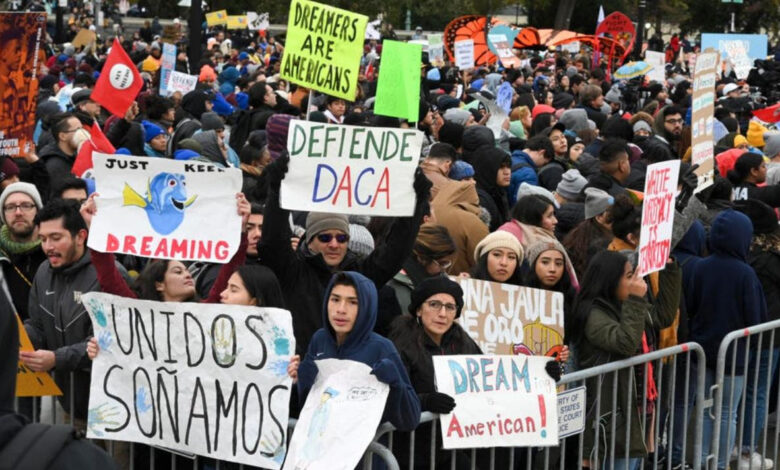Immigration News Daca – Why DACA Recipients Need to Stay in the United States

Immigration news daca
A group of nine Republican-led states asked a federal judge to end Deferred Action for Childhood Arrivals (Daca), a policy that shields nearly 600,000 immigrants brought to the United States illegally as children from deportation. If the court strikes down the program, DACA recipients could lose their work permits and be subject to deportation proceedings.
DACA participants are motivated to stay in the United States, pursue education and work, and contribute to the economy. They contribute a total of about $42 billion to the U.S. gross domestic product and are net tax contributors at all levels of government.
As a result, a decision to take DACA recipients out of the labor market would have economic impacts that exceed those of removing them from the country. They are young, educated, and motivated to find employment that will enable them to earn a living and provide for their families.
The current uncertainty about their status discourages them from investing in themselves, from starting their own businesses and from finding the best job match for their skills. It also harms their employers, who must worry about retaining and expanding the workforce when their hiring practices are disrupted.
Whether DACA recipients are allowed to remain in the United States is up for dispute in a case going before the Supreme Court. A ruling that strikes down DACA would leave 600,000 young people with no legal status, which they say can cause significant financial and emotional harm.
A DACA recipient named Maria Rocha has been working as a teacher since 2012. She began pursuing her master’s degree while still in high school, she said. When the Obama administration first created DACA in 2012, Rocha enrolled in Teach for America and quickly gained a teaching position.
Her employer pays her a salary that is more than double what she was earning before DACA. She also receives a monthly cash advance to cover her rent and utilities.
DACA holders are also highly engaged with their communities, which is good for the economy, Rocha said. They are active in church, community organizations and other activities that support their families.
In addition to contributing to the economy, DACA recipients are able to get state and local benefits that are not available to undocumented immigrants. For example, they can attend public schools and participate in youth sports teams.




